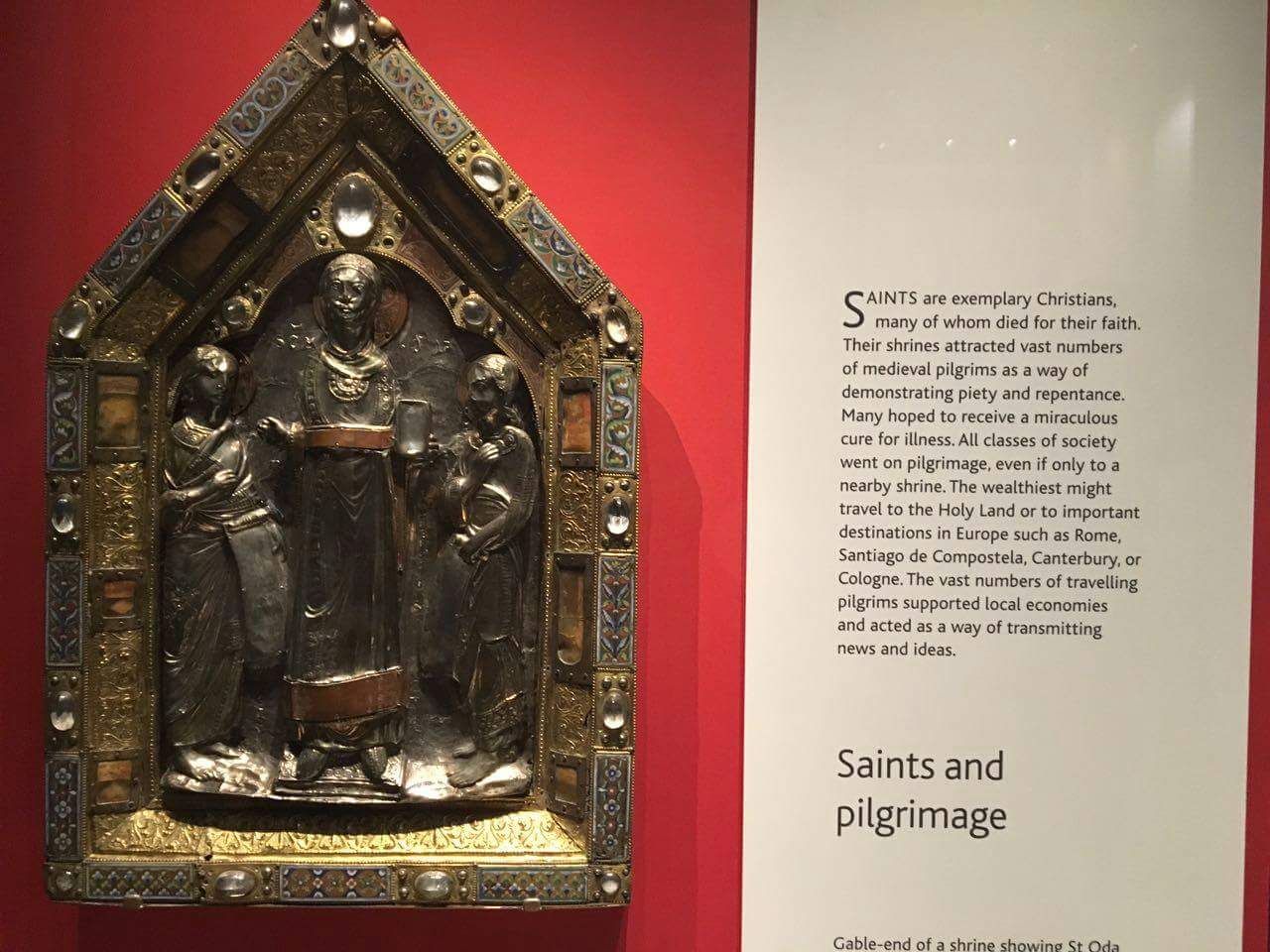
Walking through the British Museum in London, on a rainy Saturday afternoon in November 2016, I came upon this exhibit with the following inscription:
Saints are exemplary Christians, many of whom died for their faith. Their shrines attracted large numbers of medieval pilgrims as a way of demonstrating piety and repentance. Many hoped to receive a miraculous cure for illness. All classes of society went on pilgrimage, even if only to a nearby shrine. The wealthiest might travel to the Holy Land or to important destinations in Europe such as Rome, Santiago de Compostela, Canterbury or Cologne. The vast numbers of traveling pilgrims supported local economies and acted as a way of transmitting news and ideas…
Sadly, many have believed the lie that saints are a few special ones who once walked among us, who, after their deaths, by special ceremonial rituals are “enshrined” or canonised. Alleged to possess the power to even yield miraculous results to those who place their faith in them, they are entreated to as ‘mediators’ to make intercession for the living! We are told that by their “supererogation”–in other words, their overplus righteousness whilst they lived on earth is more than enough to spill over to those of us on this side of heaven–they are able to gain special and speedy access to God over and above other believers.
This notion of who a Saint is, no doubt popularised by the Roman Catholic church, is false. It is utterly unscriptural–thank God!
A cursory look at the New Testament will prove that this is not the way the Bible defines “Saints”. All of us who have placed our faith in the Lord Jesus Christ for salvation are Saints, faithful and In Christ Jesus (Eph. 1:1)! Every single time the word ‘Saint’ appears in the New Testament (67 times), it was used in the plural sense and addressed to the whole congregation. The term, in the original, simply means, one who has been “separated” or “set apart”. The Biblical teaching is that every believer has been thus set apart, chosen from out of the world unto God (1Pet. 2:9). Another synonym is “sanctified”—which is what Christ does to everyone who places their faith in Him—he sanctifies (cleanses) them by His atoning blood, shed on Calvary to redeem sinful man from the power and condemnation of sin. Thus, Paul will begin his letter to the Corinthians thus:
To the church of God that is in Corinth, to those sanctified (set apart, made holy) in Christ Jesus, called to be saints together with all those who in every place call upon the name of our Lord Jesus Christ, both their Lord and ours: (1Cor. 1:2, insertion mine).
To place faith in dead saints and visit their “shrines” hoping for miraculous results is not Christianity as we find it in the New Testament. It is superstitious and foreign to Biblical Christianity. To pray to or through anything or anyone else apart from the Lord Jesus Christ is idolatry. The Bible prohibits that and affirms that Jesus is the only one mediator between God and men (1Tim. 2:5) and that there is none other beside him (Acts 4:12). Dead saints can’t make intercession for any living beings; they are dead! It is only Christ Jesus who died, yet rose again, who is alive forevermore (praise God!) and makes intercession for all who draw near to God through Him (Heb. 7:25). To add to Christ is in fact to deny Him, and to defy the Scriptures, and we must strenuously reject any form of suggestion to go to God through any other.
Luther was right to warn us solemnly:
Any teaching that does not square with Scriptures is to be rejected, even if it snows miracles every day.


